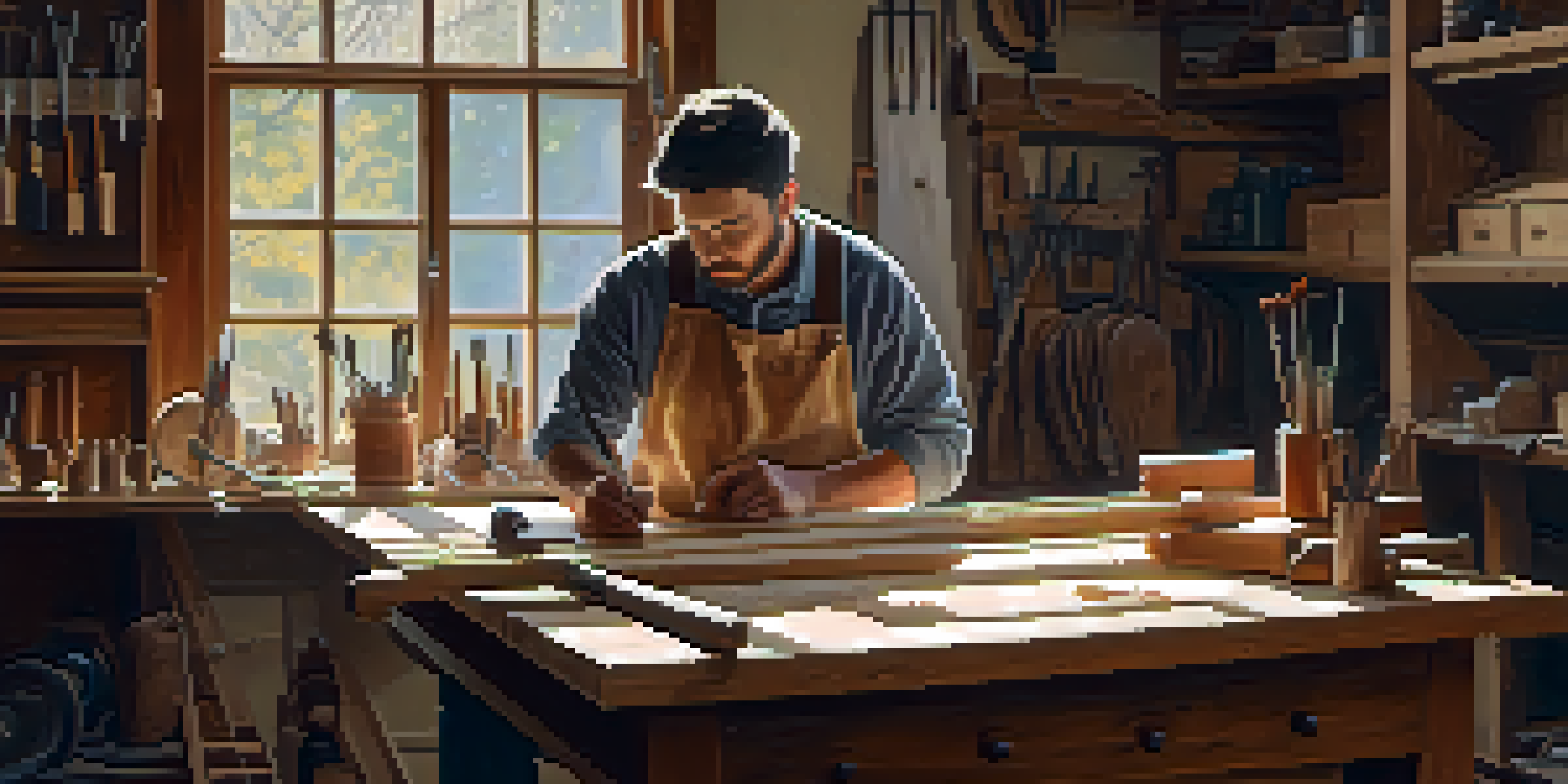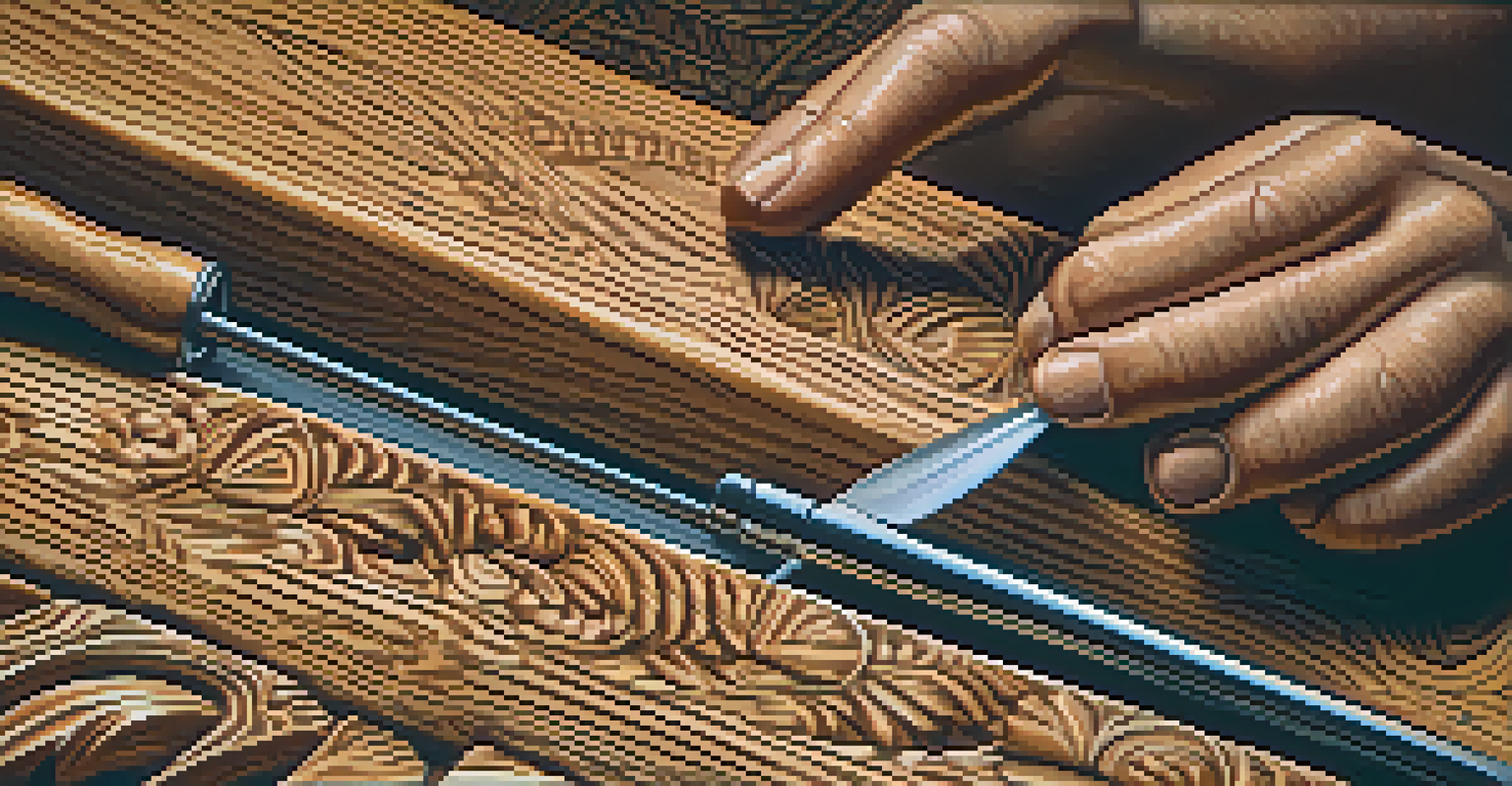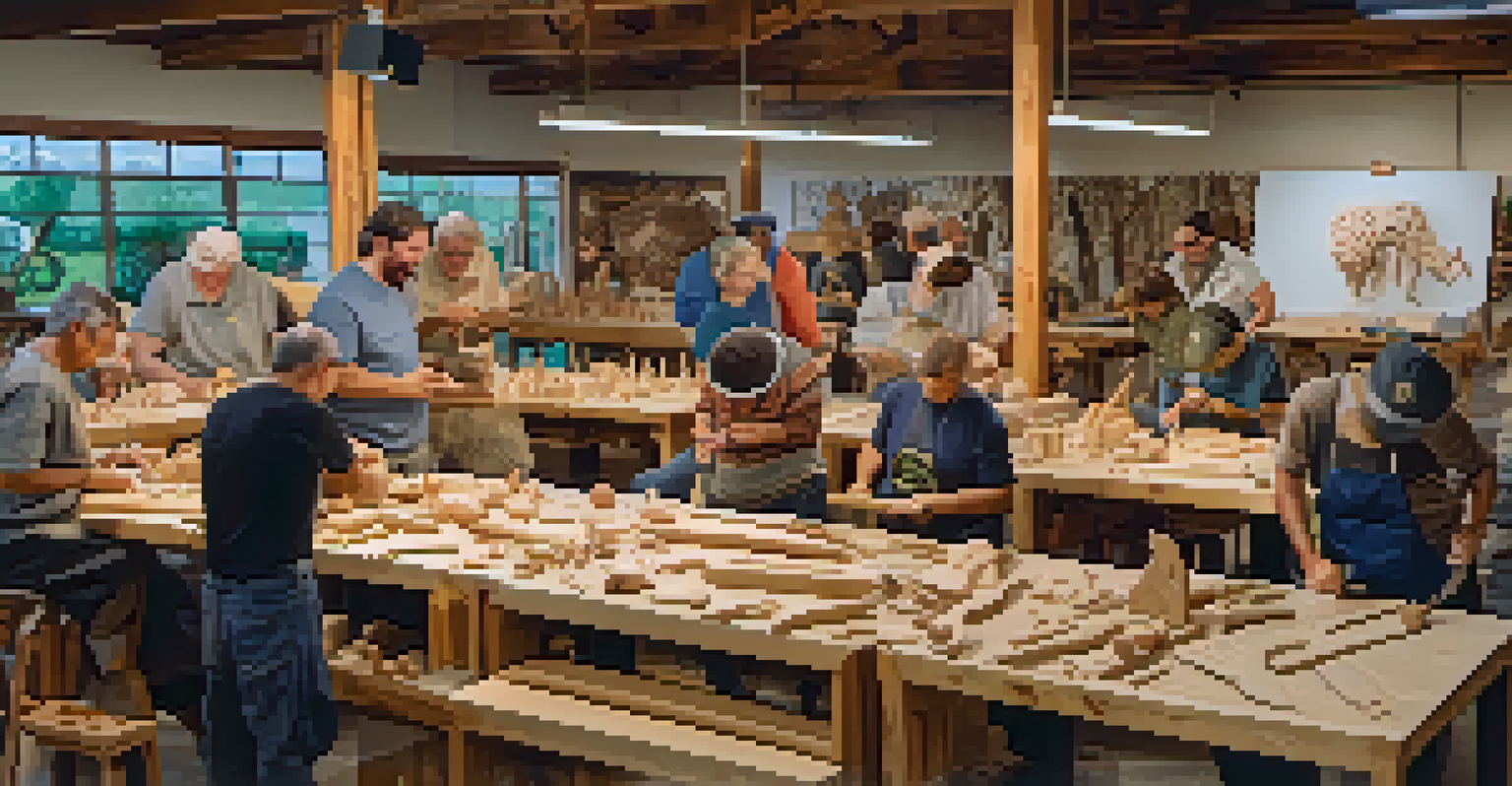The Role of Carving in Building Emotional Resilience

Understanding Emotional Resilience and Its Importance
Emotional resilience refers to our ability to adapt to stress and adversity. It's like a mental rubber band that stretches but doesn't break under pressure. Building this resilience is crucial for navigating life's challenges, whether it's a tough day at work or personal loss.
The greatest glory in living lies not in never falling, but in rising every time we fall.
Many people seek out various methods to foster emotional resilience, such as therapy, meditation, or exercise. However, creative outlets like carving provide a unique approach to building this strength. Engaging in hands-on activities can offer both a distraction and a therapeutic release.
Ultimately, resilience allows us to bounce back from difficulties and grow stronger in the process. By understanding its importance, we can explore how carving can play a vital role in enhancing this ability.
Carving as a Therapeutic Outlet for Emotions
Carving, whether wood, stone, or even ice, serves as a powerful form of self-expression. When you immerse yourself in the tactile experience of shaping materials, it can help channel emotions that might otherwise feel overwhelming. This hands-on practice can be incredibly grounding.

The repetitive motions involved in carving can induce a meditative state, allowing the mind to quiet down and focus on the present moment. This mindfulness aspect is essential for emotional healing, as it gives individuals space to process their feelings without judgment.
Carving Builds Emotional Resilience
Engaging in carving helps individuals adapt to stress and adversity by providing a therapeutic outlet for self-expression.
Moreover, creating something tangible can provide a sense of accomplishment and pride. Each piece carved is a testament to personal effort, reinforcing self-worth and resilience.
The Mindfulness Benefits of Carving Activities
Mindfulness involves being fully present in the moment, and carving inherently requires this level of focus. The act of carving demands attention to detail, which can pull you away from racing thoughts and negative emotions. This concentrated engagement can foster a sense of peace.
Creativity takes courage.
As you carve, you may find yourself lost in the rhythm of the work, much like how one might feel while practicing yoga or meditation. This flow state can be extremely beneficial for managing anxiety and stress, allowing for emotional clarity.
In essence, carving becomes more than just a hobby; it transforms into a practice that cultivates mindfulness, helping you build a stronger emotional foundation.
Building Patience and Perseverance Through Carving
Carving is not an instant process; it requires time, patience, and dedication. This aspect of the craft mirrors life's challenges, where results often take time to materialize. By investing time in carving, you learn to embrace the journey rather than rush to the outcome.
As you work on a piece, you inevitably face obstacles—whether it's a stubborn knot in the wood or a design that isn't coming together as planned. Overcoming these challenges fosters resilience by teaching you to adapt and find solutions. This perseverance is a vital life skill.
Mindfulness Through Creative Focus
The focused nature of carving fosters mindfulness, allowing individuals to manage anxiety and cultivate emotional clarity.
In the end, the patience developed through carving can translate into other aspects of life, equipping you with the ability to handle stressors with grace.
Expressing Emotions Through Artistic Creation
Carving allows for the expression of deep emotions that might be hard to articulate verbally. Each stroke of the tool can reflect feelings of joy, sadness, frustration, or peace. This physical manifestation of emotion can be incredibly cathartic.
Art serves as a universal language, and carving is no exception. By creating something unique, you give shape to your internal experiences, making them more manageable. This process of externalization can lighten emotional burdens.
Furthermore, sharing your carved pieces with others can also foster connection and empathy. It opens avenues for conversations about shared experiences and feelings, enhancing your emotional support network.
The Joy of Creating: Carving and Happiness
Engaging in a creative activity like carving can lead to a significant boost in happiness levels. The satisfaction derived from creating something beautiful is a powerful antidote to stress and negativity. This joy can be particularly impactful during tough times.
Moreover, the act of carving can serve as a reminder of your capabilities. Each completed project stands as a symbol of hard work and creativity, reinforcing a positive self-image. This sense of achievement can be integral to emotional well-being.
Community Strengthens Emotional Well-Being
Participating in carving workshops fosters connections and support, enhancing emotional resilience through shared experiences.
By cultivating happiness through carving, you create a buffer against life's inevitable ups and downs, fostering a more resilient mindset.
Community and Connection: Carving with Others
Participating in carving workshops or clubs can enhance the emotional benefits of this craft. Being part of a community that shares similar interests fosters a sense of belonging, which is crucial for emotional health. These connections can be a source of support during difficult times.
Sharing techniques, ideas, and finished pieces creates an environment rich in collaborative spirit. This camaraderie can lead to lasting friendships, allowing individuals to feel less isolated in their struggles. Together, you can navigate the challenges of life more effectively.

Ultimately, carving with others not only enriches your skills but also strengthens your emotional resilience through shared experiences and encouragement.